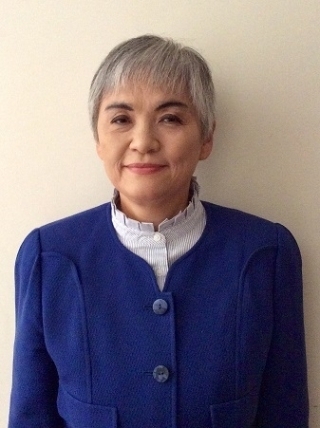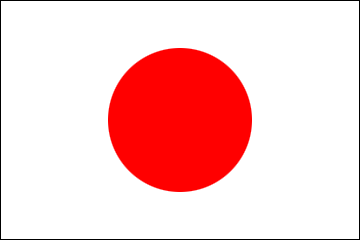Ambassador’s Greeting
2020/11/4

On 22 October, as the new Japanese Ambassador to Ethiopia, I arrived in Addis Ababa, which means “new flower” in the Amharic language. My diplomatic experiences so far have mainly been in Asia and North America as well as in the field of multilateral diplomacy, so I feel it is high time for me to bloom a “new flower” in my career related to Africa.
The more I learn about Ethiopia, the higher my expectation is for the potential for excellent cooperation that can be generated with Japan. Ethiopia is a land-locked country striving for economic development and its young population continues to grow, while Japan is a developed island country faced with a declining birth rate and rapidly aging population, Thus, Japan is seeking partners overseas to help facilitate its continued growth. The two countries seem so different from each other, but in fact, they have many similarities such as having their own distinct and long histories and cultures, and both escaped being colonized by external countries. Upon assuming the post of Ambassador to Ethiopia, which is a country of about 110 million people, and a regional power with huge potential for cooperation with Japan, I cannot help but feel hopeful and recognize the great responsibility of my work.
This year marks the 90th anniversary of the Japan- Ethiopia Treaty of Amity and Commerce, which was signed in 1930. After World War II, diplomatic relations with Ethiopia were resumed in 1955, and it was from Ethiopia in 1956 that Japan received its first State Visit by a Head of State after the war. For a long time, Japan has been contributing in Ethiopia in the area of human resource development, at which Japan excels, through such measures as providing Japanese Government scholarships to Ethiopian students to study in Japan, and by dispatching Japanese experts to Ethiopia and receiving Ethiopian trainees in Japan under the programmes of the Japan International Cooperation Agency (JICA), which opened its office in Ethiopia in 1972. Recently, the ABE Initiative (a Master’s Degree and Internship Program of African Business Education Initiative for Youth) and the SDGs Global Leader Course have been added to continue to provide more opportunities for the future leaders of Ethiopia to study and train in Japan. Another good example of our cooperation is the concept of Kaizen (continuous improvement), which originated in Japan, and has not only been successfully introduced and adopted in Ethiopia, but it is now starting to spread from Ethiopia to other parts of Africa. These facts illustrate that Ethiopia is the oldest African friend of Japan, and Japan is the oldest Asian friend of Ethiopia.
In order to further strengthen bilateral relations between Japan and Ethiopia, it is my important duty to steadily promote the implementation of development cooperation projects in the areas of industry promotion, development of agriculture, provision of high- quality infrastructure, as well as in health and education. Furthermore, supporting Japanese companies that are willing to work in and with Ethiopia is critical. I believe it is beneficial for both countries to utilize the technologies and know-how that Japanese companies have in such areas as manufacturing and science and technology, including ICT, for the benefit of the huge Ethiopian market and to help the country overcome its challenges in achieving the SDGs. In addition, the sharing of Japan’s experiences after the Meiji Restoration and after World War II, in which a poor country without natural resources achieved economic growth while maintaining its unique culture and tradition, can provide useful suggestions for Ethiopia’s further economic development.
In parallel with support for economic development, the realization of the SDG objective to “leave no one behind” is also important. Unfortunately, the worldwide COVID-19 pandemic will negatively impact the energetic endeavors that the Ethiopian Government has made so far. Japan will continue to support the Ethiopian Government’s efforts, in collaboration with UN Organizations, in realizing a society where no one is left behind.
In the political arena, I would like to proactively pursue network-building and the exchange of views with Ethiopian political leaders and eminent persons who share the values of democracy, respect for basic human rights and the rule of law, and to conduct dialogues for peace and stability in the region and in the international community as a whole.
As for public diplomacy, I plan to actively share Japan’s messages with the Ethiopian people, and in order to deepen the Ethiopian people’s knowledge about the attractiveness of Japan, I would like to introduce and utilize various aspects of Japan’s soft power. The Tokyo Olympic and Paralympic Games are to be held next year. At the 1964 Tokyo Olympic Games, the “Philosopher on the Run” Mr. Abebe Bikila’s winning of the Gold Medal in the marathon was enthusiastically celebrated in Japan. In addition, Mr. Abebe Mekonen, a former marathon world champion, was invited from Ethiopia to Kasama City, Ibaraki Prefecture, in Japan and he is now coaching young athletes in running. I sincerely wish that next year’s Tokyo Olympic and Paralympic Games become another opportunity to strengthen the ties between our two countries through sport.
Due to the COVID-19 pandemic, we have been forced to review our old ways of working and have had to adopt new measures. Diplomacy is no exception. Large gatherings, such as a reception to introduce myself as I assume my new duties, are not easy to carry out under the present situation in Ethiopia. Nevertheless, I believe that “Where there is a will, there is a way.” Thinking about what I have to do in order to achieve our diplomatic goals, I would like to do my work in new ways. I will do my best to make as many “new flowers” as possible bloom so that we may reach new heights of Japan-Ethiopian relations, and I humbly seek your assistance and advice.
The more I learn about Ethiopia, the higher my expectation is for the potential for excellent cooperation that can be generated with Japan. Ethiopia is a land-locked country striving for economic development and its young population continues to grow, while Japan is a developed island country faced with a declining birth rate and rapidly aging population, Thus, Japan is seeking partners overseas to help facilitate its continued growth. The two countries seem so different from each other, but in fact, they have many similarities such as having their own distinct and long histories and cultures, and both escaped being colonized by external countries. Upon assuming the post of Ambassador to Ethiopia, which is a country of about 110 million people, and a regional power with huge potential for cooperation with Japan, I cannot help but feel hopeful and recognize the great responsibility of my work.
This year marks the 90th anniversary of the Japan- Ethiopia Treaty of Amity and Commerce, which was signed in 1930. After World War II, diplomatic relations with Ethiopia were resumed in 1955, and it was from Ethiopia in 1956 that Japan received its first State Visit by a Head of State after the war. For a long time, Japan has been contributing in Ethiopia in the area of human resource development, at which Japan excels, through such measures as providing Japanese Government scholarships to Ethiopian students to study in Japan, and by dispatching Japanese experts to Ethiopia and receiving Ethiopian trainees in Japan under the programmes of the Japan International Cooperation Agency (JICA), which opened its office in Ethiopia in 1972. Recently, the ABE Initiative (a Master’s Degree and Internship Program of African Business Education Initiative for Youth) and the SDGs Global Leader Course have been added to continue to provide more opportunities for the future leaders of Ethiopia to study and train in Japan. Another good example of our cooperation is the concept of Kaizen (continuous improvement), which originated in Japan, and has not only been successfully introduced and adopted in Ethiopia, but it is now starting to spread from Ethiopia to other parts of Africa. These facts illustrate that Ethiopia is the oldest African friend of Japan, and Japan is the oldest Asian friend of Ethiopia.
In order to further strengthen bilateral relations between Japan and Ethiopia, it is my important duty to steadily promote the implementation of development cooperation projects in the areas of industry promotion, development of agriculture, provision of high- quality infrastructure, as well as in health and education. Furthermore, supporting Japanese companies that are willing to work in and with Ethiopia is critical. I believe it is beneficial for both countries to utilize the technologies and know-how that Japanese companies have in such areas as manufacturing and science and technology, including ICT, for the benefit of the huge Ethiopian market and to help the country overcome its challenges in achieving the SDGs. In addition, the sharing of Japan’s experiences after the Meiji Restoration and after World War II, in which a poor country without natural resources achieved economic growth while maintaining its unique culture and tradition, can provide useful suggestions for Ethiopia’s further economic development.
In parallel with support for economic development, the realization of the SDG objective to “leave no one behind” is also important. Unfortunately, the worldwide COVID-19 pandemic will negatively impact the energetic endeavors that the Ethiopian Government has made so far. Japan will continue to support the Ethiopian Government’s efforts, in collaboration with UN Organizations, in realizing a society where no one is left behind.
In the political arena, I would like to proactively pursue network-building and the exchange of views with Ethiopian political leaders and eminent persons who share the values of democracy, respect for basic human rights and the rule of law, and to conduct dialogues for peace and stability in the region and in the international community as a whole.
As for public diplomacy, I plan to actively share Japan’s messages with the Ethiopian people, and in order to deepen the Ethiopian people’s knowledge about the attractiveness of Japan, I would like to introduce and utilize various aspects of Japan’s soft power. The Tokyo Olympic and Paralympic Games are to be held next year. At the 1964 Tokyo Olympic Games, the “Philosopher on the Run” Mr. Abebe Bikila’s winning of the Gold Medal in the marathon was enthusiastically celebrated in Japan. In addition, Mr. Abebe Mekonen, a former marathon world champion, was invited from Ethiopia to Kasama City, Ibaraki Prefecture, in Japan and he is now coaching young athletes in running. I sincerely wish that next year’s Tokyo Olympic and Paralympic Games become another opportunity to strengthen the ties between our two countries through sport.
Due to the COVID-19 pandemic, we have been forced to review our old ways of working and have had to adopt new measures. Diplomacy is no exception. Large gatherings, such as a reception to introduce myself as I assume my new duties, are not easy to carry out under the present situation in Ethiopia. Nevertheless, I believe that “Where there is a will, there is a way.” Thinking about what I have to do in order to achieve our diplomatic goals, I would like to do my work in new ways. I will do my best to make as many “new flowers” as possible bloom so that we may reach new heights of Japan-Ethiopian relations, and I humbly seek your assistance and advice.
